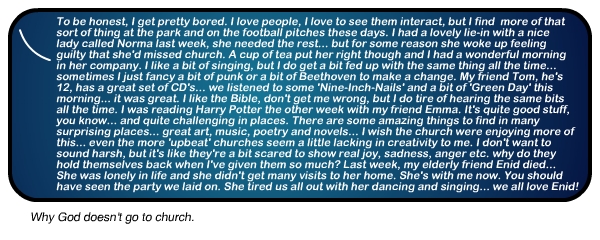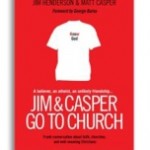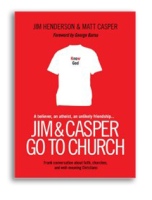I watched a debate last week between porn king Ron Jeremy, and porn pastor Craig Gross. Apparently, the two are traveling around to college campuses and debating the pros and cons of porn. I love what Craig is doing at XXX Church, and his book The Gutter is one of the better books I have ever read.
So I really hate to say that in my opinion, Craig lost the debate. There are multiple reasons why, which I won’t go into here. (This is NOT to say I am in favor of porn!)
But something was said during the debate which really got me thinking. One of Craig’s arguments was that porn is fantasy, and people who watch porn are bound to be disappointed by sex, since reality never matches fantasy. This is certainly true, and even Ron Jeremy didn’t deny that porn presents a fantasy.
But Ron’s rebuttal is what really made me think. Ron argued that we all live in a fantasy world. Everything we see on television is fantasy and does not match up with reality. Most of what we see and read in books and magazines is hyped-up, glossed-over, air-brushed fiction.
 His argument was that if porn is wrong because porn is fantasy, then almost everything we read and watch and get involved in is wrong as well, because most of it is fantasy. Even the way most of us live our lives is fiction. We rarely let people see the inner hurt, pain, depression, frustration, fear, loneliness, and anger.
His argument was that if porn is wrong because porn is fantasy, then almost everything we read and watch and get involved in is wrong as well, because most of it is fantasy. Even the way most of us live our lives is fiction. We rarely let people see the inner hurt, pain, depression, frustration, fear, loneliness, and anger.
As my wife and I were talking about this, she made the observation that this fantasy-life fiction is magnified in most churches.
The Fantasy World of Church
We seem to think that since the Bible talks about peace that passes understanding, joy in the midst of trials, contentment in times of need, faith in the face of fear, and happy lives full of holy ambition, that if we don’t have these things, something is wrong with us.
And when we look around at others on Sunday morning, and sing the happy songs, and listen to the motivating sermon, we are tempted to think, “Everybody else seems to have what we are so loudly proclaiming. I better act like I do too, or they will think something is wrong with me.”
A pretty good case could be made that church fantasy is more damaging than porn fantasy.
The reason is that most people in most churches don’t know that everyone else is in just as much pain as they are. Most people wear painted smiles to church. The suits and skirts hide scars. And the pastor isn’t really that excited about God; he’s just high on caffeine (I’m speaking to myself there!).
Most people are afraid to be real and authentic at church because then people will think they’re unspiritual.
 Many churches are bigger fantasy playgrounds than the porn industry.
Many churches are bigger fantasy playgrounds than the porn industry.
Which is Worse?
So the question is this: Which is worse? Thinking that your spouse will never be satisfied with you in bed, OR thinking that God will never be satisfied with you in this life? The first is a result of looking at porn, the second is a result of attending some churches.
Future posts will look at some possible indications that you are attending a fantasy church (Worse than Porn Part 2, Worse than Porn Part 3, and what you can do about it.









